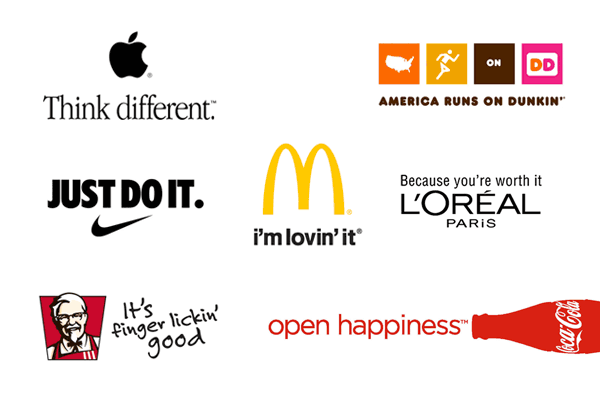When we think of wanting to bring a human connection to our branding, we do not mean to commodify interpersonal experiences. Imparting to a customer a company’s backstory is not meant to beguile; presenting a continuity of customer service is not meant to manipulate; adhering to core values is not a façade. The jaded view of business and marketing (not without reason) is that every aspect of a brand is created only to increase profitability, and any other aspect is secondary. But the Don Draper, Mad Men, approach to marketing is antiquated. Customers know this, and they can identify it when they see it. They don’t want to be sold to. They don’t want their decisions reduced to the targeted goal of some clever campaign. The objective of a brand in this day and age should be to genuinely create and maintain human connection.

The fact is that customers don’t want to be treated like customers anymore.
The patron/client/customer identifier establishes a wall that distinguishes your brand from the individuals it seeks to affect. Is it ridiculous to genuinely shift a company’s perspective so that instead of a customer it sees a friend? You might go above and beyond for a customer, give them top-class customer service, but you’d do anything for a friend. The company to customer relationship might be based on a certain reciprocity, but a friendship exists outside of a transactional perspective, involving mutual respect. And let’s face it, you do want something more than money from your customers. Your top-class service is at the same time a request for loyalty and even, dare we think it, love. The Olive Garden’s old motto, “when you’re here, you’re family”, doesn’t quite go far enough. Its promise is conditional. You must go and eat there to receive the benefits of this promise. Whereas we all have friends and family we could go without seeing for months, but that bond is not diminished.

Take a look at these slogans for example, we know you get a feeling more than just knowing they are a product. The slogan, the colours and the logo give you that feeling of there is more behind it.
If your brand strives to make a person feel connected, don’t make it conditional. Not every aspect of dealing with a customer needs to be transactional or product-centred. Maybe you ask silly questions to inspire interesting conversation. What lame super power would you have? But it has to be lame! No flying or invisibility. Ya! You grow those fingernails slightly quicker than normal! What three pizza toppings would you choose if they’d be the only ones you get for the rest of your life? Feta, olives, and shrimp!? You’re out there, but I’m here for it. It’s so pointless that it can’t possibly be related to the purchasing in progress or the service being paid for. But that’s the point. Your friend is more than what they’re here to buy.

Take Starbucks for example, even though they might not be able to spell our names, at least they ask for it, and the fact you get to customize your drink as if they were their just to listen to your needs.
So often our friends are an integral part of our own identities. So too does this tend to be the case when it comes to brand loyalty. Brand loyalty is affixed to one’s identity. But what kind of relationship does this loyalty take? Would a customer want to shout it from the rooftop, or is it a guilty pleasure, perhaps a shameful secret? We all know a customer’s budget, or the ubiquitous nature of certain companies, can create many return visits even when a company’s questionable business practices are widely known. This can create the illusion of loyalty, but if the customer wouldn’t want to admit to their patronage, it can’t be true loyalty. A customer should be proud to frequent or do business with your company. Your brand should enhance their identity, the way they feel their identity fulfilled by the good friends they count on.

You want your customers to trust your brand.
You want your brand to bring them joy. You want them to care for your brand. More and more the relationship between customer and brand is being described in terms of friendship. This is because more and more human connection is at the forefront of our collective minds. Covid showed us more than ever before the psychological strain when such connections are limited. This is not to say that people are actively and consciously looking for connection to the brands they espouse, but if that connection is there for them, their loyalty and affection for that brand will be all the stronger.
This human connection can be cultivated and maintained by instilling your brand with various social qualities. First, your brand must be personal. How is your brand relevant to your customer? People want to feel that they are more important than products or their bank account. Show them that this is true by connecting on a personal level. Respond to them as soon as possible; engage with them on how they want your company to function; allow for humour, gifs, memes, and content that you, your employees, and people in general respond to. Take whatever steps necessary to replace a faceless company with a personal feel.

Authenticity is also paramount to strengthening a human connection with your customers.
No one trusts commercials or sales pitches, and it’s difficult to overcome a person’s innate distrust of companies. They need to be shown over and over again that your brand is entirely authentic. Not only must your product or service be as advertised, but your brand should emanate with a genuine concern for your customer’s satisfaction. Do what so many governments and corporations promise but never fulfill: be transparent. Use easy to understand language and be honest about missteps. Mistakes are inevitable, but addressing them rather than covering them up promotes a perception of honesty for your brand. A customer can only truly connect to a brand they see as authentic.
Your brand should emulate the zeitgeist. This is to say that it should be a reflection of, and even a source of, culture. Again, we see how essential a brand’s core values are. These core values become your brand’s promise to the community in which it thrives. Your messaging will reflect this. Address the goings-on of the community and the world. Respond to news and events in constructive ways: participate as a member of the community! Adapt to the community’s growing needs. Maybe your company can offer programs, or scholarships, or just engage in some way with its neighbours and neighbourhood. As a member of the community your brand will participate in, and can even generate, culture. A cultural connection is a human connection. Your customers will feel as if participating with your brand is akin to expressing their own identity.

By crafting a genuine human connection your brand can become a leader, and even influence change.
Even the smallest company can try and leave the world better than we found it. At Elevin Elevin we aspire to provide these types of branding opportunities for our clients, seeking to make a positive difference and real human connection.
One step to get closer to the community that you are trying to reach is by downloading our Competitor Analysis and Target Audience workbook. This one step will get you started on the right foot.

